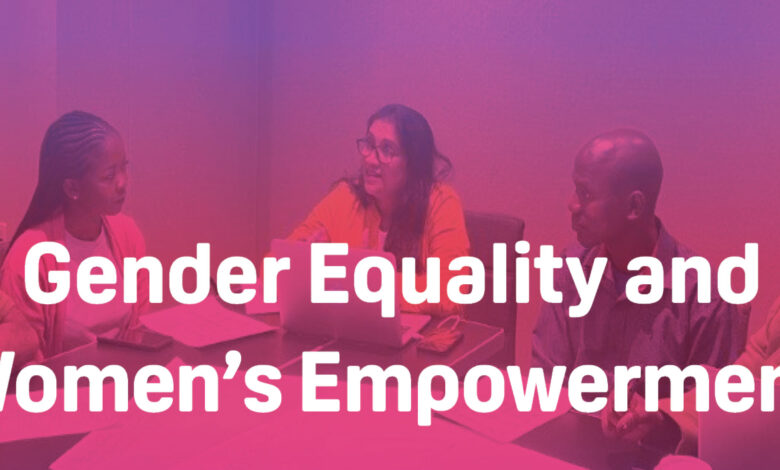Gender Equality and Women’s Empowerment

Gender equality and women’s empowerment are essential for creating a just and equitable society. Despite significant progress in recent years, women continue to face discrimination and exclusion in various areas of life, including education, employment, and political participation. In this article, we will explore the importance of gender equality and women’s empowerment, the challenges that women still face, and the ways in which we can work together to create a more just and equitable society.
What is Gender Equality?
Gender equality refers to the equal rights, opportunities, and treatment of individuals, regardless of their gender. It is a fundamental human right and a prerequisite for achieving sustainable development and peace. Gender equality means that women and men have the same power to shape society and make decisions about their lives.
Why is Gender Equality Important?
Gender equality is essential for a fair and just society. It has a positive impact on economic growth, poverty reduction, and social development. When women have the same rights and opportunities as men, they can fully participate in society and contribute to the economy. Gender equality also leads to better health outcomes, as women have better access to healthcare and education.
The Challenges Facing Women
Despite progress in recent years, women still face significant challenges in achieving gender equality and empowerment. Women are often paid less than men for the same work, and they are underrepresented in leadership positions in politics and business. Women also face higher levels of violence and harassment, both in the workplace and at home.
Ways to Empower Women
Empowering women is essential for achieving gender equality. Here are some ways in which we can work together to empower women:
1. Education
Education is a key driver of gender equality. When women have access to education, they can develop the skills and knowledge they need to participate fully in society. Education also helps women to make informed decisions about their lives and health.
2. Economic Empowerment
Economic empowerment means providing women with the resources and skills they need to participate fully in the economy. This includes access to credit, training, and support for entrepreneurship. When women are economically empowered, they can support themselves and their families, and they can contribute to the economy.
3. Political Participation
Political participation is essential for achieving gender equality. Women must have a seat at the table when decisions are being made about their lives and their communities. This includes running for political office, voting, and participating in civic organizations.
4. Addressing Violence Against Women
Violence against women is a significant barrier to gender equality. It is essential to address and prevent all forms of violence against women, including domestic violence, sexual harassment, and trafficking.
Conclusion
Gender equality and women’s empowerment are essential for creating a just and equitable society. While progress has been made in recent years, there is still a long way to go. By working together to address the challenges facing women and empower them, we can create a world in which women have the same rights, opportunities, and treatment as men.



